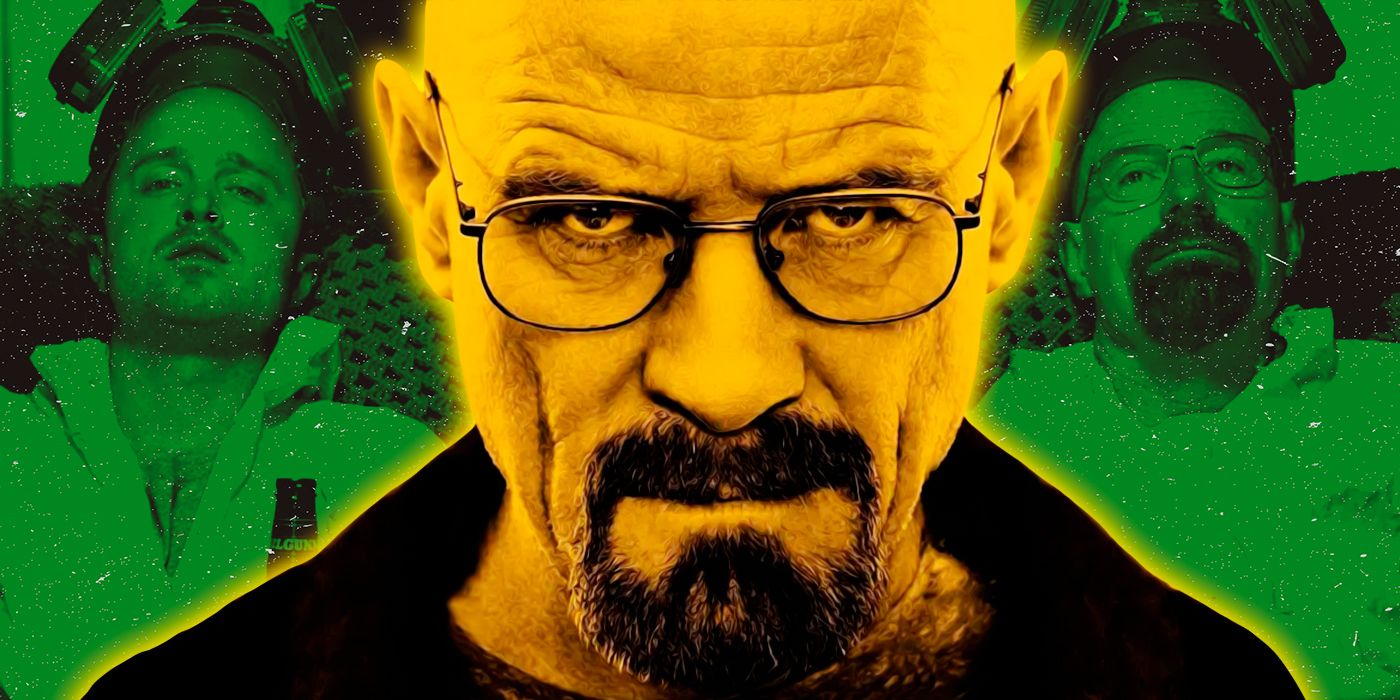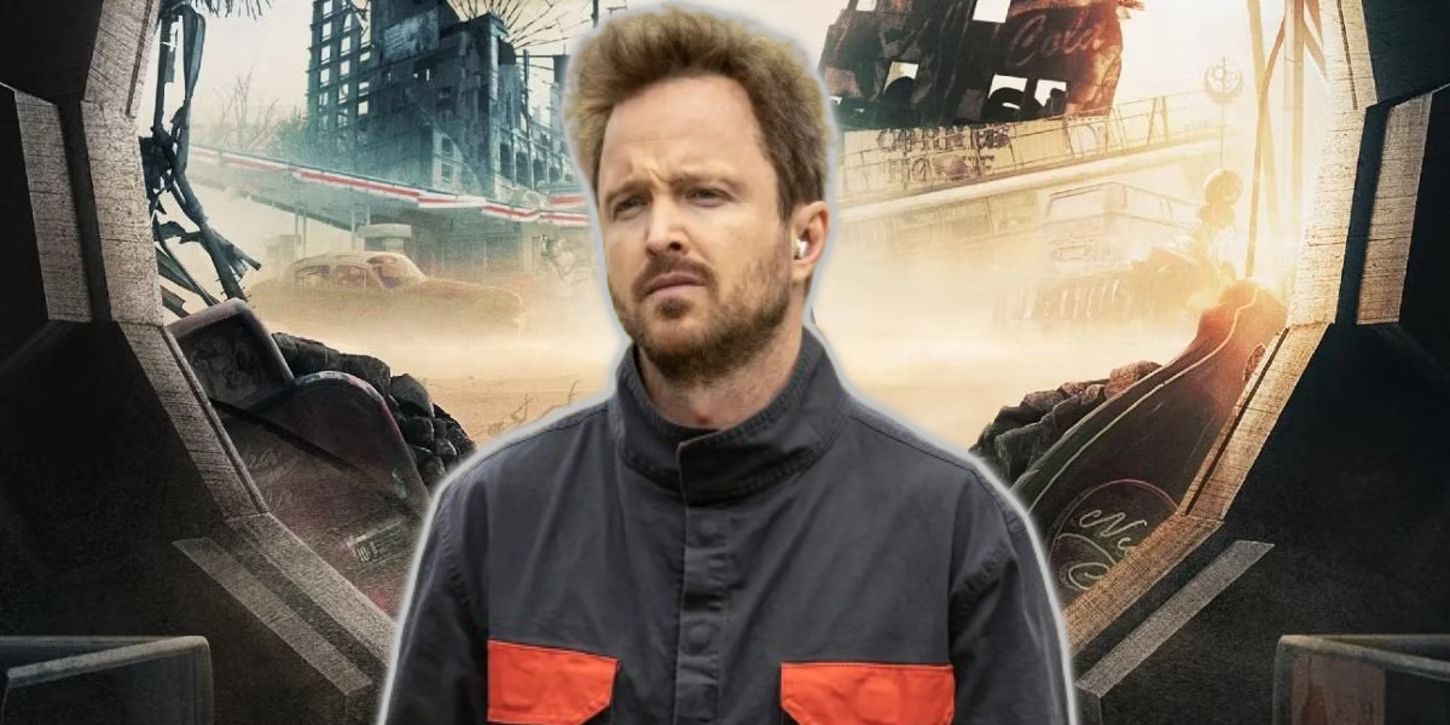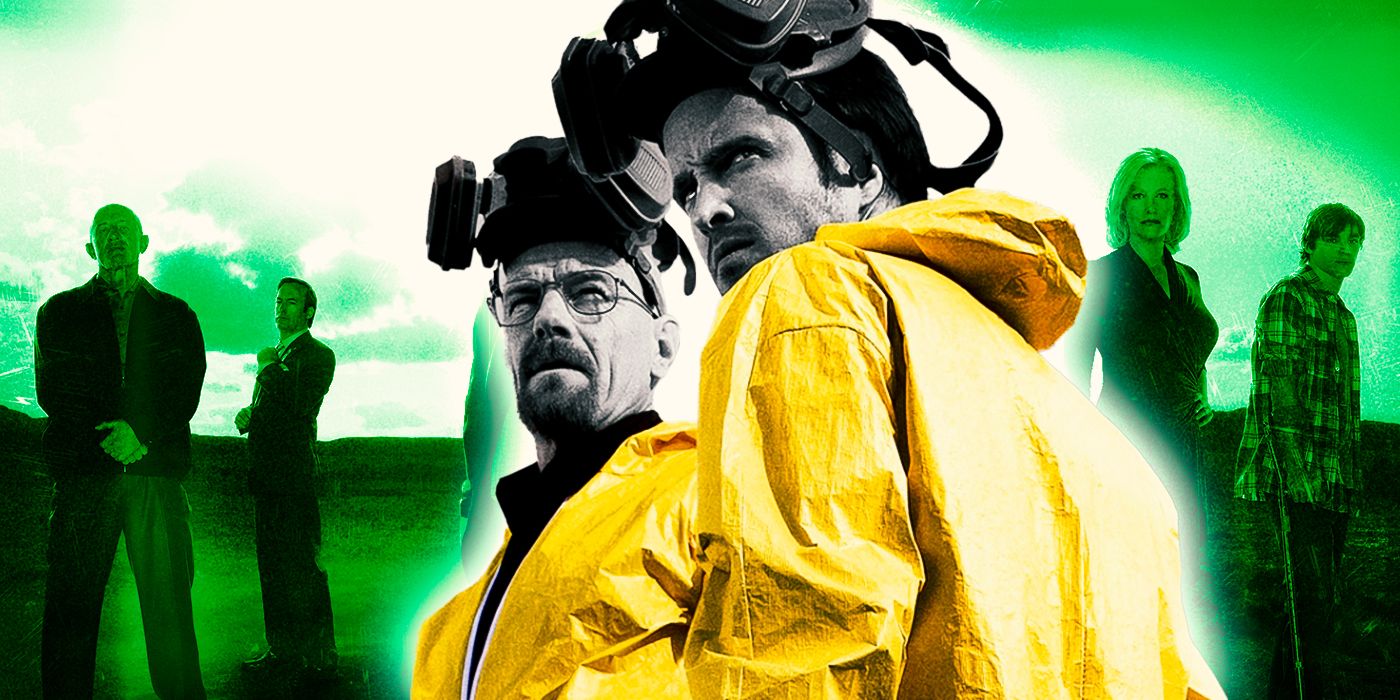One of the strongest testaments to the writing and filmmaking of Vince Gilligan and those who worked with him on Breaking Bad is how often viewers forgot that Walter White was evil. The title comes from an expression, not used much in slang but often used in writing, to describe a character's journey to villainy. Yet, revisiting the series, it becomes clear that Walter White always had genuine darkness in him.
Breaking Bad was AMC's second serious effort to rebrand itself from American Movie Classics into a purveyor of Prestige TV. The series remains a brilliantly crafted, well-executed TV show with compelling stories and just enough unreality to keep viewers along for the ride. Things like Gus Fring, with literally half his face blown off in an explosion, fixing his tie before falling dead are truly absurd. Breaking Bad's disliked Season 3, Episode 10, "The Fly" is an almost slapstick comedic diversion from the death and destruction Walt wrought. How the show blended its raw, gory violence, emotional character asides and genuinely funny comedic moments stands as an example to future storytellers who want to set a sprawling epic in a mundane setting. Breaking Bad is about the banality of evil and the lengths people will go to protect their lives or their cash or, in Walt's case, his reputation.
Walter White Had Evil in Him From Breaking Bad's First Episode
Bryan Cranston Played Walter Subtly, but His Mild-Mannered Character Was Dark

'Let It Go': Bryan Cranston Addresses the Breaking Bad Universe Ending
Bryan Cranston shares his honest thoughts on the Breaking Bad universe coming to an end.While many will happily declare Breaking Bad one of the finest TV series ever, the first two seasons were a drag for some viewers to get through, with the show not really catching on until it "got good." Yet Gilligan and company knew their characters immediately, and they weren't afraid to let them "break bad" slowly. Walter White's first three murders were sloppy, and he apologized as he killed his victims. Eventually, he grew less squeamish, willing to kill anyone to get his way -- and even poisoned a child.
The first glimmer of the villain Walter will become was seen in the pilot. Before he's cooked a single batch of methamphetamine, he went shopping with Skyler and Walt, Jr. Kids from the high school he teaches at mocked Walter, and he assaulted them openly in the store. One kid he attacked was much bigger than him... but Walt stared him down with fury and confidence. He was out of his depth for most of those first seasons, but with each act of violence, each horrific choice, he became more comfortably a villain.
Like James Gandolfini as Tony Soprano, Bryan Cranston was able to evoke sympathy from viewers through his performance. When facing off against the cartel or Gus Fring, viewers could root for Walt and not feel bad about it. Walter was so effective at lying (even to himself) that viewers could miss the abuse he leveled at Skyler. Every time Walt appealed to Jesse Pinkman, Mike Ehrmantraut or any character, Cranston was able to sell it so viewers believed him. He wasn't really a "bad guy" -- he was just trying to make money for his family. But, as he said in the series finale, being Heisenberg was the only time he felt truly "alive."
Breaking Bad Tormented Jesse Pinkman
Aaron Paul's Character Was Famously Going to Be Killed Off... Until He Wasn't

Fallout Series Co-Creator Hints at Aaron Paul Casting in Season 2
Fallout series executive producer Jonathan Nolan teases that Aaron Paul may want a role in a potential second season.Cranston wasn't the only actor who made their villainous character loveable. It's become Breaking Bad legend that Gilligan was planning on killing Jesse Pinkman, but Aaron Paul's take on the character made Jesse far too affable for such a fate. Ironically, Jesse was the only serious player in the game who survived the series. And despite him never really having a chance at any other kind of life, Jesse Pinkman was a bad guy, too. He wasn't as far gone as Walter, though. Before Jesse became a killer, it was Walt's hand guiding him in that direction.
The death of Gale Boetticher was the most infamous moment where Jesse takes a life even though he didn't want to. Through Walter's influence, Jesse was pushed further and further to the dark side. However, unlike "Mister White" -- as Jesse called him no matter how much crime they do together -- Jesse wasn't able to rationalize it away. He descended into addiction and self-destructive behavior to punish himself. He went to the DEA and to Hank Schrader, leading to the latter's death and his own months-long incarceration with Jack, Todd and the rest of the white supremacist gang.
Jesse Pinkman's devastating experiences highlighted the practical importance of his character. As Walt's protégé, he was just as proficient a cook. However, he was also deeply important to Walt on a personal level, even after his many betrayals. As Walter's family grew further removed from him, Jesse was the only bridge between his old life and his life as Heisenberg. That's why freeing Jesse was Walt's final act -- a bit of penance before he met his end. Holly would never know him, and along with shedding his name, Walt Jr. (now known as Flynn) would hate him forever. Jesse was close enough to being one of Walt's kids and would appreciate him sacrificing what remained of his life.

